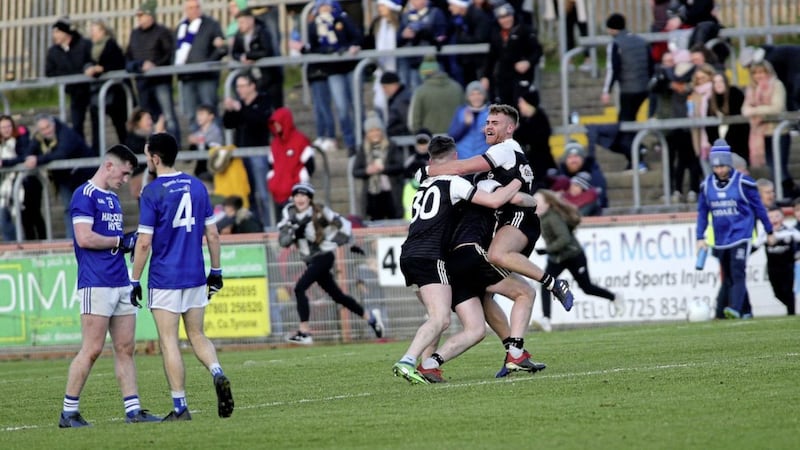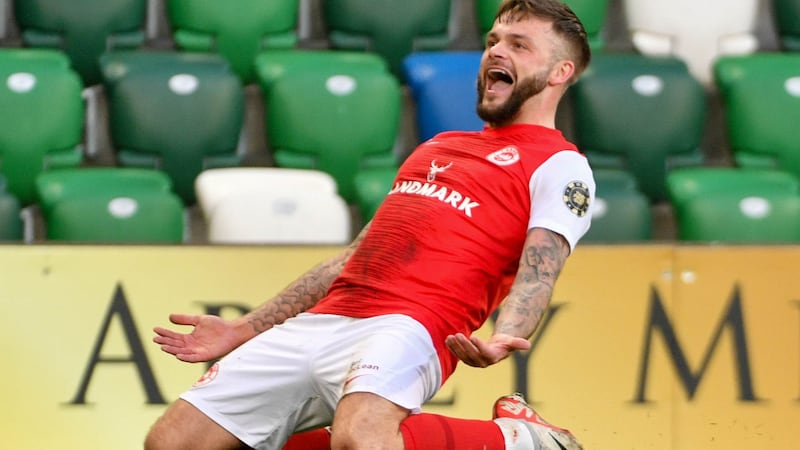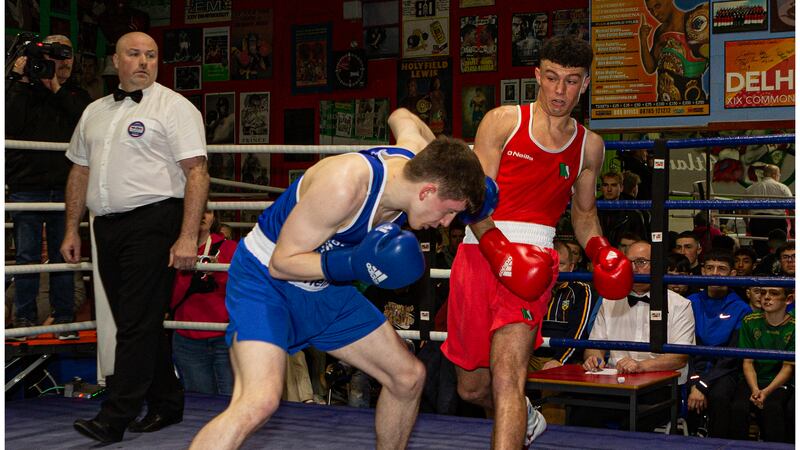BEFORE any clamour builds that the inter-county championships must, ABSOLUTELY MUST, take place this year, remember this: Championships not taking place in their actual year is one of the first GAA ‘traditions’.
Have a guess how many of the first 20 years worth of All-Ireland Championships were completed when they were supposed to be?
Half of them?
A quarter?
Nope.
One – as far as football is concerned.
Hurling did fare better, but not by much – with only two completed on schedule, or at least in the year whose name/number they bore - 1889 and 1890. Even then, the latter final wasn’t completed, with the title subsequently awarded to Cork after they walked off due to alleged excessively rough play by their opponents from Wexford.
The only one of the first 22 football championships which actually finished in its supposed calendar year was the second one, the 1889 campaign – helped by no All-Ireland semi-finals taking place.
Indeed, there were no Connacht or Ulster representatives between 1893 and 1899, so no All-Ireland semi-finals in those seasons either, and yet still those Championships could not be completed on time.
Most with a knowledge of GAA history will know that the 1888 All-Ireland campaign never took place, with leading GAA players instead heading across the Atlantic ocean for ‘the USA invasion’.
Yet even after that the GAA could not get its calendar back on track.
Many of the All-Ireland Championships took nearly two years to complete: the ‘1890’ Final taking place in June 1892 (four months after the ‘1891’ Final), with a similar scenario for the next 10, from 1896 until 1905 inclusive.
The ‘1906’ Football Final took place in October 1907, and the ‘1907’ version in July 1908, allowing the 1909 Final, astonishingly, to take place in 1909.
Albeit on December 5. Kerry won it. Of course.
A week later, the 1909 All-Ireland Hurling Final also took place in its calendar year. With more traditional echoes, Kilkenny (Mooncoin) beat Tipperary (Thurles).
The 1910 Football Championship was completed that year – but not on the pitch, as reigning champs Kerry (Tralee Mitchel’s) refused to travel, so the beaten finalists from the previous season, Louth (Tredaghs) were awarded the trophy.
In the 1910 All-Ireland hurling championship Cork beat Galway in the All-Ireland semi, having been nominated to represent Munster – but the Rebels then lost their provincial final to Limerick, who went on to contest the national decider against Wexford. Reigning A-I champs Kilkenny had actually represented Leinster in the All-Ireland quarter-final (against London), but then lost to Dublin in their provincial semi. So the Dubs played the All-Ireland semi-final. Against Glasgow. Obviously. And won. But then lost to Wexford in the Leinster Final. So the Model County went on to the All-Ireland Final. And beat Limerick. Without scoring a single point (but seven goals).
All clear?!
Obviously we don’t want to go back to those days of chaos and confusion, appeals and counter-appeals, objections and counter-objections.
However, in these extraordinary times, perhaps there is a case for harking back to another GAA tradition, that of clubs representing their counties.
This idea was also offered up yesterday on Twitter by Ulster GAA coaching guru Terence McWilliams, so this column is in good company.
At present, spectators aren’t allowed into GAA matches in most of the country anyway, apart from in the six counties of Northern Ireland. Partition continues to cast a long shadow…
Fingers crossed (after being thoroughly washed with soapy water), that will change, but who knows if the hopes of having crowds of close to 30,000 at December All-Ireland Finals will become reality.
Of course it’s mind-boggling – and extremely annoying - that people can crowd into restaurants, shops, cafes, etc but aren’t allowed to attend matches, despite science stating that the risk of transmission of Covid-19 is far less outdoors compared to indoors – around 19 times less, coincidentally enough…
Yet there is also the ‘fact’ that people don’t social distance at games.
Let 300 people into a ground and they won’t, don’t stay two feet apart, never mind two metres.
We’re social animals, we love to chat, especially when it’s with someone you may not have seen for months, or even a manager or a player you’ve never met before.
Even if organisers mark out specific seats on which spectators should sit inside stadia, some of the people will move around to congregate with their fellow fans
There aren’t sufficient stewards to stop such behaviour – and even if there were, those charged with ‘policing’ such rules won’t want to risk touching a stranger, or even someone they know well – but don’t know with whom they have come into contact.
That’s the real risk. The unknown.
My daughter started nursery school last week and – of course – had ‘the sniffles’ by the weekend. A child that never seemed to stop coughing in her sleep for the first two years of her life, we didn’t fear she had Covid because it was only a slightly runny nose this time.
Yet sensible concerns aren’t so much FOR children as ABOUT them, that they might be ‘super-spreaders’ of coronavirus without showing any symptoms that they have it.
Easing everyone back into education would obviously have been better for all concerned, teachers, pupils, and parents and it remains to be seen how this particular approach pans out.
Government, north and south of the border, is largely erring on the side of caution when it comes to sport, even though Covid isn’t going to stop at ‘the border’ or decide not to transmit itself because employers want people to get back to work.
As so often on this island, a sensible middle ground approach would be best.
The club competitions are already well under way, so why not finish them to All-Ireland level, rather than starting inter-county action from scratch? Finish the National Leagues, maybe, but provincial and All-Ireland Championships in front of few or no spectators hold limited appeal.
Maybe it is time to make this a ‘club only’ year, limiting the numbers of people and players travelling around, and accept that the All-Ireland championships don’t always get completed every year.









